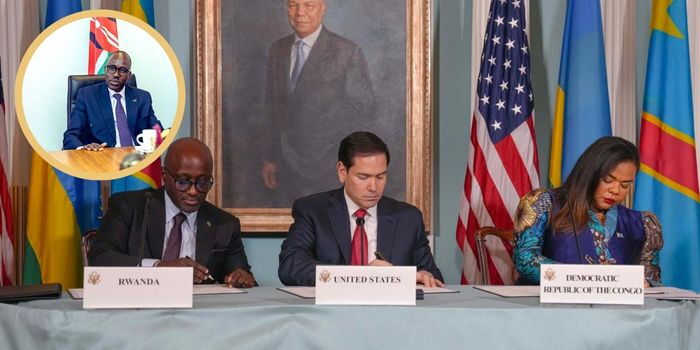Travel & Tourism: Congo hosts World Music and Tourism Festival - Can Rumba redefine its global image? - Graphic Online
It is one of the richest countries on earth in terms of natural resources – its soil bursting with copper, cobalt, gold, coltan, timber and diamonds. Yet, for decades, its global narrative has been dominated by conflict, political instability and humanitarian crisis.
The very minerals that power smartphones and electric vehicles have often been extracted under conditions of exploitation, drawing headlines that tell of tragedy rather than triumph.
But from July 16 to 18, 2025, Kinshasa will attempt to retune the world’s perception of Congo. Not through mines, but through music. Not through crisis, but through culture.
Under the High Patronage of President Félix Antoine Tshisekedi Tshilombo, and in collaboration with UN Tourism, the DRC will host the first-ever World Music and Tourism Festival, a three-day celebration that would shed light on its rich music legacy and could mark the beginning of a cultural renaissance – and a potential turning point in the country’s soft power strategy.
The festival, to be held at the Central African Cultural and Arts Centre (CCAPAC), will position Congolese Rumba, officially listed as UNESCO Intangible Cultural Heritage in 2021, at the heart of its programme. But it’s not just a celebration of rhythm and movement. It’s a strategic recalibration of the DRC’s national brand.
With performances spanning traditional, folk, urban and Rumba genres, alongside exhibitions of Congolese fashion, crafts and cuisine, the event seeks to offer the world a full sensory experience of Congolese identity. And beyond the sounds and sights, a robust schedule of roundtables and masterclasses will explore themes such as:
• Transatlantic musical ties and the role of music in diplomacy
• Artists' rights, copyright and equitable economic models
• Music tourism as a development tool
• The digital revolution and youth-driven innovation
This blend of celebration and critical dialogue is precisely what makes the festival more than just an event – it’s a statement of cultural resurgence.
Congo’s story has always been more layered than the headlines.
This is the country that gave the world musical giants like Franco Luambo, Papa Wemba and Koffi Olomidé. It is home to rich storytelling traditions, vibrant fashion scenes and a youthful population that continues to innovate against the odds.
What the world often fails to see is that Congo is not just a place of extraction — it is a place of expression.
In that light, the World Music and Tourism Festival is a chance to reclaim the narrative.
To show that alongside its mineral riches, Congo possesses something even more powerful — its culture, its people and its spirit.
Cultural events of this scale have transformative potential. Just look at how Afrobeats helped rebrand Nigeria, or how Ghana’s Year of Return reignited diaspora engagement.
With the right investment and consistency, Congo too can become not only a destination for business or humanitarian intervention, but for pilgrimages of culture — where visitors come to learn, to listen and to dance.
Yes, the festival will attract visitors, boost the local economy and support small businesses.
Yes, it will empower Congolese creatives and artisans.
But its deeper impact may lie in the confidence it builds internally and the respect it earns externally.
For Congolese youth — many of whom have grown up seeing their country portrayed in grim terms — this is a chance to see themselves differently.
For policymakers, it’s a reminder that investing in culture is not ornamental, but foundational.
For the international community, it’s an opportunity to engage with the DRC on a new level — not as a humanitarian beneficiary, but as a cultural leader.
The hope is that this is not a one-off festival, but the first note in a longer composition.
That it will lead to annual editions, Rumba heritage trails, cultural policy reforms and permanent infrastructure for music tourism.
That it will seed partnerships between Congolese artists and global platforms.
That it will invite the diaspora home — not just to visit family, but to contribute to a creative economy rooted in pride and potential.
Above all, the festival offers a moment for the world to see Kinshasa, not just as a city of struggle, but of sound.
A capital of rhythm. A capital of rebirth.
Congo has long powered the world through what lies beneath its ground.
Now, it is time to power the world with what flows from its soul.
This July, Kinshasa will send out a new message — not through political statements, but through guitars, voices, drums and dances.
A message that says: we are more than what you think.
We are rhythm.
We are Renaissance.
We are ready.
Let the music play, and may the world finally hear Congo for what it truly is.










